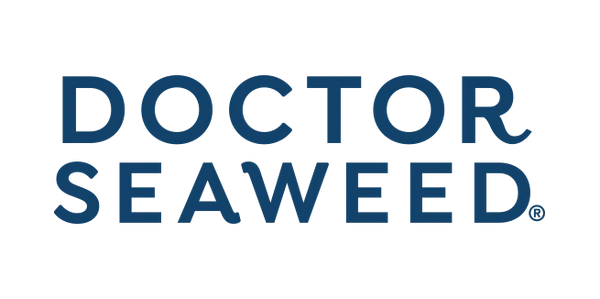Iodine is key to our health, yet research show we still aren’t getting our fill
If you’re a regular reader of our blog, you’ll know all about the health benefits of iodine.[1] We talk a lot about this mighty nutrient, yet there’s plenty of evidence out there to show that many of us still aren’t getting the amount of iodine we need in order to support our overall health and wellbeing.
Like many other vitamins and minerals, iodine has a critical role to play in the smooth function of our bodily functions. To put it simply, iodine is intrinsic in the production of thyroid hormones, which help to preserve the health of cells and our metabolism.[2] When we fail to meet our required iodine levels, we risk the health of our thyroids and our wellbeing as a whole.
New research from the Iodine Global Network reveals that iodine deficiency is still very much a problem across Europe, including in the UK. We’re going to take a closer look at this widespread study, as well as exploring the importance of iodine and how you can introduce it into your diet.
Iodine deficiency is a key concern across Europe
Estimates from the Iodine Global Network suggest that up to 50% of infants across Europe are at risk of being deficient in iodine.[3] This spells danger for the health of a whole generation because when iodine intake is low, the thyroid is stimulated. Consequently, this increases the risk of thyroid diseases for millions of young people and adults alike. For pregnant women, the risk is increased, and even mild deficiency can cause hyperstimulation in the thyroid.
Regional Coordinator for Western and Central Europe at the Iodine Global Network, Dr Rodrigo Moreno-Reyes, revealed more about the results, saying that the risk to infants can actually be interpreted as a knock-on effect of the issues caused by iodine deficient women during pregnancy.
“If we look at recent surveys,” explains Dr Moreno-Reyes, “we see that all countries have iodine sufficiency in terms of children. But it’s different if you look at the adult population. 54% of countries reported low iodine among the adult population and 64% reported deficiency among pregnant women.”
Why do you need iodine?
Iodine is important for all of us, and particularly for people who are pregnant. Women who are pregnant need about 50% more iodine than other women in order to provide enough iodine for both themselves and their baby.[4]
Iodine deficiency can lead to a series of significant health concerns. Without adequate iodine, the thyroid enlarges, impacting our ability to swallow and breath comfortably. This can also lead to hyperthyroidism, which can have adverse effects on your metabolism and heart rate.
In pregnancy, the risks of iodine deficiency are even greater, with severe iodine deficiency being associated with congenital abnormalities, preterm delivery and even miscarriages.[5]
Seaweed can be a valuable tool in maintaining in achieving your recommended daily iodine allowance
For many people, the primary sources of iodine within the diet are seafood and dairy products, as well as iodised salt. Yet the fact is that UK adults are still struggling to meet the required amount.[6] In particular, those following a strict plant-based diet can find it hard to access iodine in sufficient levels without supplementation.
Seaweed is the only viable vegan source of iodine and provides a highly-concentrated level that releases iodine more slowly with longer retention in the body. In fact, one 500mg capsule of Doctor Seaweed’s Weed & Wonderful organic seaweed contains as much iodine as three whole mackerel, making it easy to achieve the recommended amounts of iodine every single day.
Just as importantly, our capsules are natural whole food supplements that have not been through heavy chemical processing. This makes it an easy, ethical and convenient solution for those both on specialised diets and anybody suffering from low iodine levels more generally.

